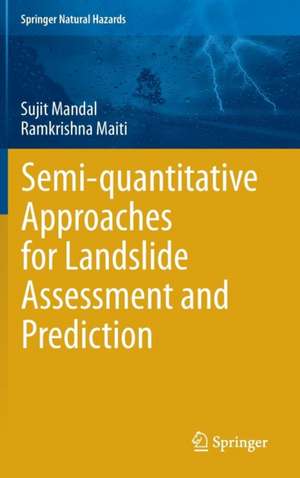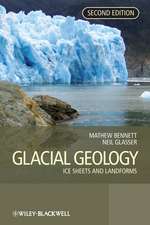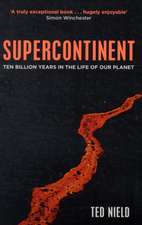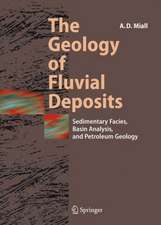Semi-quantitative Approaches for Landslide Assessment and Prediction: Springer Natural Hazards
Autor Sujit Mandal, Ramkrishna Maitien Limba Engleză Hardback – 26 noi 2014
| Toate formatele și edițiile | Preț | Express |
|---|---|---|
| Paperback (1) | 697.65 lei 6-8 săpt. | |
| Springer Nature Singapore – 23 aug 2016 | 697.65 lei 6-8 săpt. | |
| Hardback (1) | 647.40 lei 6-8 săpt. | |
| Springer Nature Singapore – 26 noi 2014 | 647.40 lei 6-8 săpt. |
Din seria Springer Natural Hazards
- 15%
 Preț: 697.15 lei
Preț: 697.15 lei - 18%
 Preț: 1011.45 lei
Preț: 1011.45 lei - 15%
 Preț: 707.00 lei
Preț: 707.00 lei - 18%
 Preț: 726.52 lei
Preț: 726.52 lei - 15%
 Preț: 641.03 lei
Preț: 641.03 lei - 15%
 Preț: 644.95 lei
Preț: 644.95 lei - 18%
 Preț: 915.79 lei
Preț: 915.79 lei - 18%
 Preț: 1234.32 lei
Preț: 1234.32 lei - 18%
 Preț: 950.66 lei
Preț: 950.66 lei - 15%
 Preț: 639.25 lei
Preț: 639.25 lei - 18%
 Preț: 956.18 lei
Preț: 956.18 lei - 18%
 Preț: 729.06 lei
Preț: 729.06 lei - 15%
 Preț: 697.65 lei
Preț: 697.65 lei - 18%
 Preț: 1225.48 lei
Preț: 1225.48 lei - 18%
 Preț: 1398.80 lei
Preț: 1398.80 lei - 18%
 Preț: 1408.71 lei
Preț: 1408.71 lei - 18%
 Preț: 730.79 lei
Preț: 730.79 lei - 15%
 Preț: 643.00 lei
Preț: 643.00 lei - 24%
 Preț: 885.20 lei
Preț: 885.20 lei - 15%
 Preț: 706.16 lei
Preț: 706.16 lei - 24%
 Preț: 986.01 lei
Preț: 986.01 lei
Preț: 647.40 lei
Preț vechi: 761.65 lei
-15% Nou
Puncte Express: 971
Preț estimativ în valută:
123.88€ • 132.47$ • 103.29£
123.88€ • 132.47$ • 103.29£
Carte tipărită la comandă
Livrare economică 18 aprilie-02 mai
Preluare comenzi: 021 569.72.76
Specificații
ISBN-13: 9789812871459
ISBN-10: 9812871454
Pagini: 300
Ilustrații: XVII, 292 p. 97 illus., 34 illus. in color.
Dimensiuni: 155 x 235 x 22 mm
Greutate: 0.61 kg
Ediția:2015
Editura: Springer Nature Singapore
Colecția Springer
Seria Springer Natural Hazards
Locul publicării:Singapore, Singapore
ISBN-10: 9812871454
Pagini: 300
Ilustrații: XVII, 292 p. 97 illus., 34 illus. in color.
Dimensiuni: 155 x 235 x 22 mm
Greutate: 0.61 kg
Ediția:2015
Editura: Springer Nature Singapore
Colecția Springer
Seria Springer Natural Hazards
Locul publicării:Singapore, Singapore
Public țintă
Professional/practitionerCuprins
Introduction.- Geo-spatial Variability Geomorphic Parameters and Slope Instability.- Hydrologic Parameters and Slope Instability.- Surface Run-off, Soil Erosion and Slope Instability.- Geomorphic threshold Landslide.- Stability Model and Landslide Susceptibility Using Geo-technical Properties of Soil.- Application of Analytical Hierarchy Process (AHP)&Frequency Ratio (FR) in Assessing Landslide Susceptibility and Risk.- Landslide Mitigation.
Notă biografică
Dr. Sujit Mandal is an Assistant Professor in the Department of Geography at Raja N.L. Khan Women’s College, Midnapore, West Bengal, India. He has worked in the area of Applied Geomorphology consisting Hazards, Risk and related Community Responses. He has over 20 publications in various journals. He is currently a principal investigator of research projects funded by the University Grant Commission.
Dr. Ramkrishna Maiti is an Associate Professor in the Department of Geography and Environment Management at Vidyasagar University, West Bengal, India. His significant contributions have been in the area of Geomorphology, Hydrology, Environment, Ecology and Sociology. He heads several research projects funded by the UGC and ICSSR. He had over 60 publications to his credit.
Dr. Ramkrishna Maiti is an Associate Professor in the Department of Geography and Environment Management at Vidyasagar University, West Bengal, India. His significant contributions have been in the area of Geomorphology, Hydrology, Environment, Ecology and Sociology. He heads several research projects funded by the UGC and ICSSR. He had over 60 publications to his credit.
Textul de pe ultima copertă
In the present authors attempted to have a clear insight into the interworking of geotectonic, geomorphic, hydrologic and anthropogenic factors leading to landslide in the Shivkhola Watershed, the most worst affected region of Darjiling Himalaya. This book includes the parameters responsible for landslide events in mountainous areas. It provides knowledge and understanding to the local people, planners, and policy makers about the causes and consequences of landslides as well as provides a suitable method to mitigate the landslips. The book deals with the role of land, water and soil in landslide phenomena. These three attributes have been described in terms of critical rainfall, critical slope, critical height and changes and development of drainage network in landslides. Mitigations and site-specific management options are evaluated considering the roles of local govt., community and other organizations in both pre-slide and post-slide periods. Various scientific methods have been used to assess the landslides that will bring about tremendous help to researchers in the field. In particular, Researchers in Mountain Geomorphology and Geological and Geographical Society will get tremendous help from some topics such as 1-D slope stability model, SCS Curve Number Technique, Assessment of morphological parameters, application of RS & GIS, Application of Analytical Hierarchy Process. Semi-quantitative approach is followed for understanding spatial distribution of cohesion, friction angle slope, lithology and lineaments, drainage, upslope contributing area, land use and land cover types etc. This book also reveals some techniques and models for initiating slope instability.
Caracteristici
Discusses case studies to elaborate on the introduced model Elaborates the role of land, water and soil in landslide phenomena Provides knowledge and understanding about the causes and consequences of landslides, as well as suitable methods to mitigate landslips Includes supplementary material: sn.pub/extras















